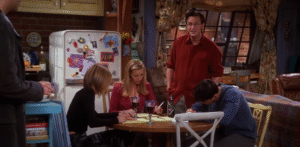Quantifiers x Intensifiers
Quantifiers e Intensifiers: Como Dar Precisão e Intensidade ao Seu Inglês
Você já se pegou tentando dizer “um pouco de” ou “muito” em inglês e ficou na dúvida sobre qual palavra usar? Ou talvez quis enfatizar algo como “super interessante” mas não sabia se era “very”, “really” ou “extremely”?
Os quantifiers e intensifiers são duas das ferramentas mais poderosas para tornar seu inglês mais preciso, natural e expressivo. Hoje você vai descobrir como usá-los como um nativo!
O Que São Quantifiers e Por Que Eles São Essenciais?
Os quantifiers são palavras que indicam quantidade, respondendo à pergunta “quanto?” ou “quantos?”. Eles são fundamentais para:
- Expressar quantidades exatas ou aproximadas
- Falar sobre grupos e porções
- Fazer comparações precisas
- Soar mais natural em conversas
Exemplos básicos:
- “I have some money.” (Eu tenho um pouco de dinheiro)
- “There are many people here.” (Há muitas pessoas aqui)
- “We need more time.” (Precisamos de mais tempo)
A verdade é: nativos usam quantifiers o tempo inteiro, e dominá-los é essencial para se comunicar com precisão em inglês!
Os Quantifiers Mais Importantes: Seu Guia Completo
Para Substantivos Contáveis (Coisas que você pode contar)
Many = Muitos/Muitas
- “There are many books on the shelf.”
- Usado principalmente em frases negativas e interrogativas
A lot of / Lots of = Muitos/Muitas (informal)
- “I have a lot of friends.”
- Usado em frases afirmativas, negativas e interrogativas
Several = Vários/Várias
- “I’ve read several articles about this topic.”
- Indica um número moderado (mais que alguns, menos que muitos)
A few = Alguns/Algumas (positivo)
- “I have a few suggestions.”
- Indica uma pequena quantidade, mas suficiente
Few = Poucos/Poucas (negativo)
- “Few people understand this concept.”
- Indica uma quantidade insuficiente
Para Substantivos Incontáveis (Coisas que você não pode contar)
Much = Muito/Muita
- “I don’t have much time.”
- Usado principalmente em frases negativas e interrogativas
A lot of = Muito/Muita
- “She has a lot of experience.”
- Versão mais comum para frases afirmativas
A little = Um pouco (positivo)
- “I speak a little French.”
- Indica uma pequena quantidade, mas alguma
Little = Pouco/Pouca (negativo)
- “There’s little hope for improvement.”
- Indica uma quantidade insuficiente
Quer praticar essas diferenças até dominar completamente? Nas minhas aulas, você vai trabalhar com centenas de exemplos práticos!
Como Usar Quantifiers Corretamente: As Regras Práticas
Regra #1: Identifique Se é Contável ou Incontável
Contáveis: pessoas, livros, carros, ideias
- “How many books do you have?”
Incontáveis: água, dinheiro, tempo, informação
- “How much water do you drink?”
Regra #2: Choose “Some” ou “Any”
Some = Usado em frases afirmativas
- “I have some money.”
- “Can I have some water?” (ofertas e pedidos)
Any = Usado em frases negativas e interrogativas
- “I don’t have any money.”
- “Do you have any questions?”
Regra #3: “A lot of” é Seu Melhor Amigo
Quando em dúvida entre “much/many”, use “a lot of”:
- ✅ “I have a lot of work.” (em vez de “much work”)
- ✅ “There are a lot of people.” (em vez de “many people”)
Intensifiers: Como Dar Força às Suas Palavras
Os intensifiers são palavras que intensificam o significado de adjetivos, advérbios ou outros elementos da frase.
Intensifiers Básicos (Do Mais Fraco ao Mais Forte)
A bit / A little = Um pouco
- “I’m a bit tired.”
Quite / Pretty = Bastante
- “The movie was quite interesting.”
- “She’s pretty smart.”
Very = Muito
- “This is very important.”
Really = Realmente
- “The food was really delicious.”
Extremely = Extremamente
- “The weather is extremely hot today.”
Absolutely = Absolutamente
- “You’re absolutely right!”
Intensifiers Informais Que Nativos Amam
Super = Super
- “That’s super cool!”
Way = Muito (informal)
- “This is way better than I expected.”
Totally = Totalmente
- “I’m totally confused.”
Incredibly = Incrivelmente
- “She’s incredibly talented.”
Quer aprender quando usar cada intensifier para soar natural? Minhas aulas incluem prática com contextos reais!
Combinações Poderosas: Quantifiers + Intensifiers
Exemplos Práticos:
“Quite a few” = Bastantes
- “Quite a few people came to the party.”
“Way too much” = Muito demais
- “There’s way too much noise here.”
“A little bit” = Um pouquinho
- “I’m a little bit nervous.”
“Really a lot” = Realmente muito
- “I learned really a lot from this experience.”
Os Erros Mais Comuns (E Como Evitá-los)
Erro #1: Confundir “Much” e “Many”
❌ Errado: “I don’t have much friends.” ✅ Correto: “I don’t have many friends.”
Erro #2: Usar “Much” em Frases Afirmativas
❌ Errado: “I have much work today.” ✅ Correto: “I have a lot of work today.”
Erro #3: Confundir “Few” e “A few”
❌ Errado: “I have few good friends.” (sugere insatisfação) ✅ Correto: “I have a few good friends.” (positivo)
Erro #4: Exagerar nos Intensifiers
❌ Errado: “It’s very extremely hot.” ✅ Correto: “It’s extremely hot.”
Quantifiers em Situações Reais
No Trabalho:
- “We need several more people for this project.”
- “I have quite a bit of experience in marketing.”
- “There isn’t much time left for the presentation.”
Em Conversas Casuais:
- “I’ve watched loads of movies this month.”
- “She has tons of energy today.”
- “We’ve got plenty of food for everyone.”
Expressando Opiniões:
- “Most people agree with this idea.”
- “Some students find grammar challenging.”
- “All of us want to improve our English.”
Intensifiers Para Diferentes Situações
Situações Formais:
- “The results are particularly impressive.”
- “This is exceptionally well done.”
- “I’m rather concerned about this issue.”
Situações Informais:
- “That’s totally awesome!”
- “I’m super excited about this!”
- “This is way more difficult than I thought.”
Para Enfatizar Ainda Mais:
- “Absolutely fantastic!”
- “Completely unbelievable!”
- “Perfectly clear!”
Quer aprender a escolher o registro certo para cada situação? Nas minhas aulas, você pratica contextos formais e informais!
Expressões Idiomáticas com Quantifiers
“A great deal of” = Muito/Muita (formal)
- “She has a great deal of experience in finance.”
“A bunch of” = Um monte de (informal)
- “I have a bunch of things to do today.”
“Loads of / Tons of” = Muito/Muita (informal)
- “There are loads of opportunities here.”
“Hardly any” = Quase nenhum/nenhuma
- “There’s hardly any milk left.”
“Plenty of” = Muito/Abundante
- “Don’t worry, we have plenty of time.”
Quantifiers com Artigos e Preposições
“Some of” vs “Some”
- “Some students are here.” (alguns estudantes em geral)
- “Some of the students are here.” (alguns dos estudantes específicos)
“Most of” vs “Most”
- “Most people like chocolate.” (a maioria das pessoas em geral)
- “Most of my friends live nearby.” (a maioria dos meus amigos específicos)
“All of” vs “All”
- “All children love games.” (todas as crianças em geral)
- “All of the children are playing.” (todas as crianças específicas)
Dicas Avançadas Para Soar Mais Natural
1. Varie Seus Quantifiers
Em vez de sempre usar “a lot of”:
- Loads of, tons of, plenty of, heaps of
2. Use Intensifiers Duplos com Cuidado
✅ Correto: “Really very tired” ❌ Evite: “Very extremely tired”
3. Combine com Naturalidade
- “Quite a lot of people”
- “Way too many problems”
- “Really not much time”
4. Aprenda as Collocations
- “Vast majority” (grande maioria)
- “Tiny amount” (quantidade minúscula)
- “Enormous number” (número enorme)
Como Praticar Quantifiers e Intensifiers
Método 1: Descreva Sua Rotina
Use quantifiers para descrever seu dia:
- “I drink several cups of coffee.”
- “I have a lot of meetings today.”
- “I spend a little time reading.”
Método 2: Intensifique Suas Opiniões
Practice intensifiers ao expressar opiniões:
- “The movie was extremely boring.”
- “I’m really interested in this topic.”
- “This is absolutely necessary.”
Método 3: Compare Quantidades
- “I have more experience than before.”
- “She has fewer problems than me.”
- “We need less stress and more fun.”
Quer um método ainda mais eficiente? Nas minhas aulas, você vai praticar com situações reais e receber feedback personalizado!
Quantifiers e Intensifiers em Contextos Específicos
Para Falar de Experiências:
- “I’ve learned a tremendous amount from this job.”
- “She has considerably more skills now.”
- “We’ve made significant progress.”
Para Expressar Emoções:
- “I’m incredibly happy about this news.”
- “She’s somewhat disappointed.”
- “We’re absolutely thrilled!”
Para Dar Feedback:
- “Your presentation was quite good.”
- “There are several areas for improvement.”
- “Overall, most aspects were excellent.”








Publicar comentário